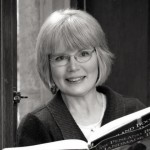Director – Alison Taylor-Brown
Everything You Need to Write a Beautiful Story
February 27 Subtext, High Events & Closings
When the story is between the lines, over the top, or at the end.
Subtext will be in the morning session.
- Below the Surface
- Implicit Narrative
High Events & Closings will be in the afternoon session.
- Weaving the Dramatic & the Subtle
- Two Mistakes with High Events
- Endings can Culminate or Imply Continuation
- Ending Literal or From Afar?
[maxbutton id=”10″]
March 12 Self-Editing
- From First Draft to Finished Manuscript in 15 Steps
- Reviewing and Applying all the Writer’s Tools
[maxbutton id=”11″]
April TBA The First Page/Character
The First Page will be in the morning session.
So you’ve got a terrific story idea! You sit down at your computer and begin to … stare at a blank screen.
For many writers, the greatest challenge is not creativity, story concept or imagination. No, their most daunting hurdle is simply how to get started.
This is not surprising because your story’s beginning—your First Page—is the most demanding key to a successful tale. Your First Page sets the tone, voice and narrative style that govern the balance of your manuscript. Without a strong and well-crafted beginning, the greatest story idea will fail to hook readers, agents, or publishers.
In this workshop…
You will learn how to insure your beginning (First Page) is right for your story—and for your readers. Topics include the critical questions you must resolve before you begin to write: story arc, voice, point of view and narrative urgency. You’ll also learn the specific rules every writer must know for successful storytelling.
This workshop will give you precise methods to address the questions above, plus many more. Each technique is explained in a detailed, organized manner, complete with useful demonstrations. The accompanying workbook/reference book will be an invaluable resource on your writer’s desk.
Character will be in the afternoon session.
We read, it has been said, to experience other lives. Characters are the vehicle through which we experience these alternate realities. If a reader is to empathize with a character, to care about him, and through him to enter into and experience the story, that character must be authentic and memorable.
In this workshop…
You will learn fourteen (14) effective techniques to create authentic characters who will draw your readers into your story. Learn multiple ways to reveal a character’s personality, appearance and manner, thoughts and motivations. Learn to use dialogue to show a character’s state of mind? What do his actions tell your readers? How does your character react to conflict? What is his agenda? What are his vulnerabilities?
You’ll also learn how to layer these techniques to create three-dimensional characters and how the important concept of narrative urgency arises from the character.
Love ’em or hate ’em, your characters must stir the emotions of your readers!
This workshop will give you precise methods to address the questions above, plus many more. Each technique is explained in a detailed, organized manner, complete with useful demonstrations. The accompanying workbook/reference book will be an invaluable resource on your writer’s desk.
[maxbutton id=”46″]
May TBA Dialogue & Setting
Dialogue will be in the morning session.
- What to Say
- How to Say it
Setting will be in the afternoon session.
- Setting – More than a Place Setting – Friend or Foe?
- The Four Elements to Research How to Research
June TBA The Word & The Sentence
How to use language to manipulate the reader to get the reaction you want.
The Word will be in the morning session.
- Diction
- Sound Devices
The Sentence will be in the afternoon session.
- The Sentence
- Figurative Language
- Types of Phrases
- Style
[maxbutton id=”9″]
Or register for the entire series.
[maxbutton id=”6″]
BIO
Village Writing School Director
Alison Taylor-Brown is an award-winning writer who sold her first novel to Simon and Schuster at the age of 30. She has an MFA in Fiction from the University of Southern New Hampshire and a lifetime of teaching experience. In 2014, she taught a series of workshops on the short story for Crystal Bridges and for several years she wrote a newspaper column on writing craft that appeared in multiple papers. She is the Director of the Village Writing School and the author of the creative writing course, Everything You Need to Write a Beautiful Story. Find out more about her and what she writes at www.alisontaylorbrown.com or read her full bio here.
Alison’s goal is to help writers take the next step, whether they’re beginning or established writers. If you’d like to know more about the program or have some ideas you’d like to share with Alison, contact her at 479-292-3665 or alisontaylorbrown@me.com
Rogers, AR


One reply on “Rogers, Arkansas”
[…] in Eureka Springs with locations in Rogers and Maumelle, the Village Writing School is dedicated to helping writers improve. And just to be […]